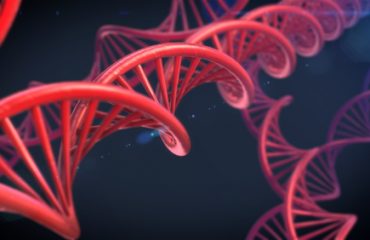Two comprehensive review papers in this week’s issue of NATURE magazine have encouraging news for us.[1],[2] One summarized the extent of this pandemic: 30 million people in 215 countries are affected, with a death rate of almost a million as of September of this year.
Experts pointed to several animal models available for testing vaccines and antiviral medications.1 This is a welcome development, because studying the infection in animals also helps us to understand the mechanisms the virus uses to cause damage. Not all animals are affected in the same way as humans, but there are enough similarities to provide us with important clues about how to treat sick patients. Interestingly, male and older non-human primates have more severe disease—just as is the case with us.
Vaccines are appearing with remarkable speed. As soon as we understood the RNA of the virus, vaccine development began at the beginning of this year.2 The effort is unprecedented. More than 180 vaccines are being tested: 47 have already passed through preliminary efficacy and safety testing, and 10 are currently being tried in large groups of patients to prove safety, efficacy and the duration of immunity. Among these are vaccines with inactivated virus, some with live but weakened versions of the virus, others target the spike protein of the virus with which it attaches to our cell membranes to enter the body, and viruses whose RNA have been altered so that they are no longer infectious. Different vaccines vary in their effectiveness; the best preparation is still to be identified.
The short- and long-term safety of the vaccine and the duration of immunity to infection are still to be established, but it is likely that by the end of this year, a promising candidate will be identified. How well and how quickly we can manufacture enough to supply Americans as well as other countries’ populations, and whether or not vaccine use will be widely accepted by those to whom we offer it, remain to be established.
[1] Munoz-Fontela C et al. Animal models for COVID 19. Nature 586..509.October 27, 2020
[2] Krammer, F. SARS-CoV-2 Vaccines in development. Nature 586. 516.October 22, 2020
Marianne J. Legato, MD, Ph. D. (hon. c.), FACP is an internationally renowned academic, physician, author, lecturer, and pioneer in the field of gender-specific medicine. She is a Professor Emerita of Clinical Medicine at Columbia University College of Physicians & Surgeons and an Adjunct Professor of Medicine at Johns Hopkins Medical School. Dr. Legato is also the Director of the Foundation for Gender-Specific Medicine, which she founded in 2006 as a continuation of her work with The Partnership for Gender-Specific Medicine at Columbia University. She received an honorary PhD from the University of Panama in 2015 for her work on the differences between men and women.
At its core, gender-specific medicine is the science of how normal human biology differs between men and women and how the diagnosis and treatment of disease differs as a function of gender. Dr. Legato’s discoveries and those of her colleagues have led to a personalization of medicine that assists doctors worldwide in understanding the difference in normal function of men and women and in their sex-specific experiences of the same diseases.
She began her work in gender-specific medicine by authoring the first book on women and heart disease, The Female Heart: The Truth About Women and Coronary Artery Disease, which won the Blakeslee Award of the American Heart Association in 1992. Because of this research, the cardiovascular community began to include women in clinical trials affirming the fact that the risk factors, symptoms, and treatment of the same disease can be significantly different between the sexes. Convinced that the sex-specific differences in coronary artery disease were not unique, Dr. Legato began a wide-ranging survey of all medical specialties and in 2004, published the first textbook on gender-specific medicine, The Principles of Gender-Specific Medicine. The second edition appeared in 2010 and the third edition, dedicated to explaining how gender impacts biomedical investigation in the genomic era, won the PROSE Award in Clinical Medicine from the Association of American Publishers in 2018. A fourth edition is forthcoming.
She also founded the first scientific journals publishing new studies in the field, The Journal of Gender-Specific Medicine, and a newer version, Gender Medicine, both listed in the Index Medicus of the National Library of Medicine. She has founded a third peer-reviewed, open access journal, Gender and the Genome, which focuses on the impact of biological sex on technology and its effects on human life.
Dr. Legato is the author of multiple works, including: What Women Need to Know (Simon & Schuster, 1997), Eve’s Rib (Harmony Books, 2002), Why Men Never Remember and Women Never Forget (Rodale, 2005), Why Men Die First (Palgrave, 2008), The International Society for Gender Medicine: History and Highlights (Academic Press, 2017), and most recently, The Plasticity of Sex (Academic Press, 2020). Her books have been translated into 28 languages to date.
As an internationally respected authority on gender medicine, Dr. Legato has chaired symposia and made keynote addresses to world congresses in gender-specific medicine in Berlin, Israel, Italy, Japan, Panama, South Korea, Stockholm, and Vienna. In collaboration with the Menarini Foundation, she is co-chairing a symposium on epigenetics, Sex, Gender and Epigenetics: From Molecule to Bedside, to be held in Spring 2021 in Italy. She maintains one of the only gender-specific private practice in New York City, and she has earned recognition as one of the “Top Doctors in New York.”





